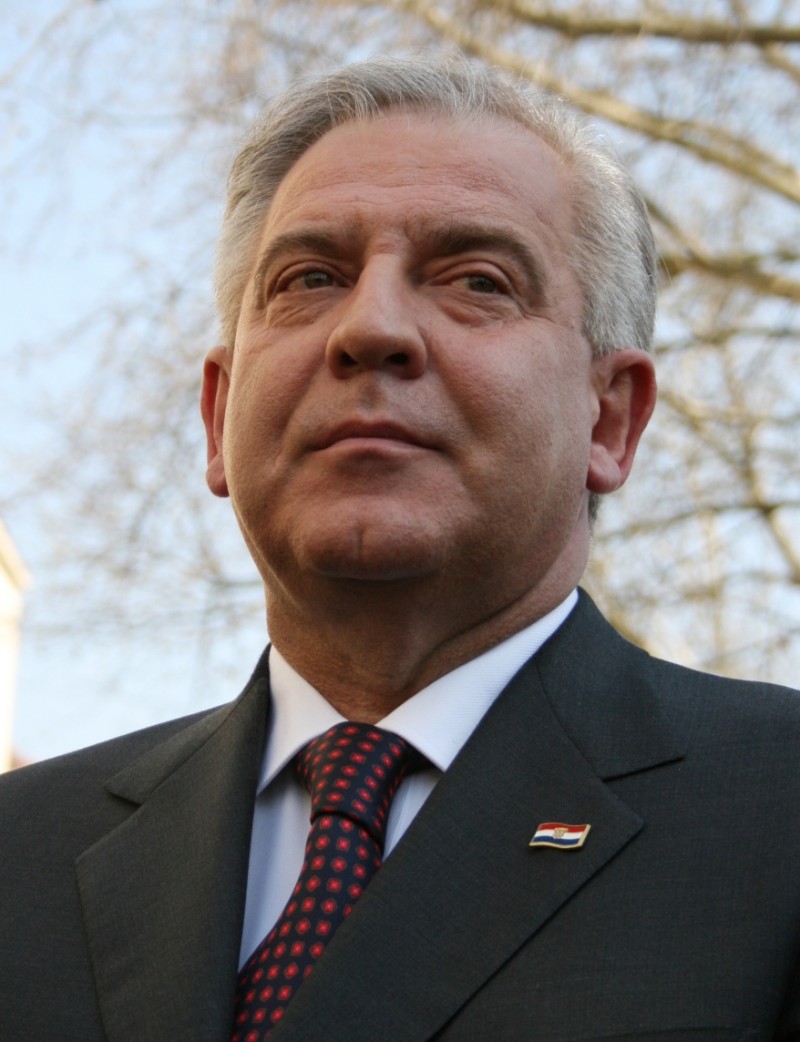The court announced Monday that Sanader had been judged on the wrong law, violating his right to a fair trial.
Although it said it could not rule on whether or not the former premier had committed the crimes for which he was originally convicted, the court said there had been several procedural problems in the course of his trial.
The court ordered the case to be heard afresh at Zagreb County Court.
Sanader had been the highest-ranking official to have been convicted in Croatia to date. Formerly head of the conservative Croatian Democratic Union (HDZ), he served as prime minister from 2003 until July 2009, when he suddenly resigned.
He was arrested in Austria in December 2010 while trying to evade the authorities in his home country.
In July 2011, he was extradited to Croatia, and has been in custody ever since.
Sanader was first sentenced to ten years in prison in November 2012. However, both the defense and prosecutors appealed the sentence.
The defense asked for a retrial, while prosecutors demanded that the sentence be increased by five years.
In June 2014, the Supreme Court upheld the conviction, but reduced the prison term to eight-and-a-half years.
One of the charges on which Sanader was originally convicted stems from 1994 to 1995, when he was vice minister of foreign affairs to Croatia. It was wartime in the country as a bloody conflict played out in the region between Croatian, Serbian and Bosnian armies.
At that time, Sanader represented the government in negotiations with the Hypo Alpe Adria Bank in Austria, lobbying them to approve credit for Croatia so it could buy buildings in other countries to use as embassies.
The court found that Sanader had abused his position by striking a deal with the bank, since he received five per cent of the overall credit in return – 3.6 million Croatian kuna (about US$523,000).
The constitutional court found that Sanader had been judged ona tougher law than he should have been – one that did not apply at the time of the act.
The law that should have been used mandates a milder punishment, according to the court.
Sanader was also originally convicted of war profiteering. A 2010 reform to Croatia's constitution ruled that no statute of limitations applied in such crimes, provided the case was still open.
However, the Constitutional Court's Monday ruling said that no lower court had yet established whether there a statute of limitations should apply to Sanader's case, since the acts took place before the new constitution came into force.
Other procedural issues were found with a guilty verdict Sanader received for accepting a five million euro (US$ 5.5 million) payment in 2008 from Hungarian energy group MOL in exchange for management rights to Croatian oil firm INA.
Sanader's re-trial will be heard at the Zagreb County Court. The date has not yet been set.
However, Sanader will remain in custody since he is serving a nine year sentence for corruption in an unrelated case involving the manipulation of public tenders.
Sanader has maintained that he is innocent of all charges.
In an open letter he sent to the Croatian public via his lawyers in June 2014, he said he had been sentenced without evidence, and that his trial was politically motivated.





